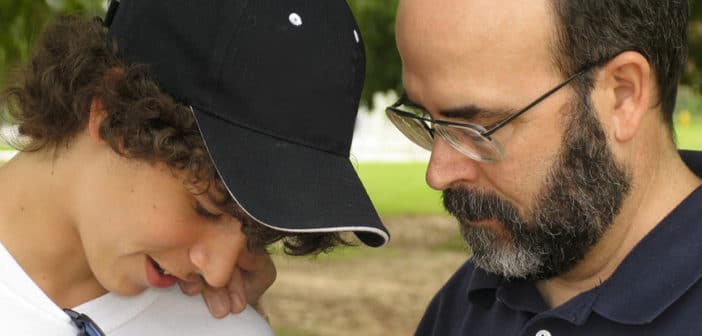 When I came into AA the first time around, it didn’t work out very well. I lasted 49 days without a drink but I never really got sober, because I kept smoking weed and eating Xanax whether I needed it or not. I also didn’t join a group, get involved by doing things like picking up a chair or two after a meeting, or even pay very much attention after the first few days, because I was too busy comparing myself to the pathetic loser speakers and thinking how unlike them I was.
When I came into AA the first time around, it didn’t work out very well. I lasted 49 days without a drink but I never really got sober, because I kept smoking weed and eating Xanax whether I needed it or not. I also didn’t join a group, get involved by doing things like picking up a chair or two after a meeting, or even pay very much attention after the first few days, because I was too busy comparing myself to the pathetic loser speakers and thinking how unlike them I was.
I also didn’t get a sponsor, who probably would have pointed out a few things to me, like how smoking weed and eating Xanax meant that I wasn’t really sober, because there was no way I could clear up while I was still stoned and popping benzos way past the time I needed them to detox. Or that talking to other people that had gone through the same shit as me might actually be helpful. Or he might have pointed out that I didn’t have to smash up cars, be homeless or rob a liquor store to qualify as an alcoholic, and that waking up with the shakes and gunning a half pint of booze for breakfast every morning would have been more than sufficient credentials.
And while I may not have stayed sober if I had a sponsor, I probably could have had a few things explained to me that would have gotten me back through the doors a little quicker, instead of waiting until I nearly drank myself to death—I have cirrhosis, so I’m not being dramatic—four years later. In hindsight, I actually think I was more interested in having the consequences go away than actually quitting drinking and drugging the first time around. I say this because I justified not getting a sponsor by reasoning that I didn’t want to disappoint him because I was probably just going to drink anyway.
So the second time around, when I was really desperate, I did get a sponsor. Most men will tell you that it’s very difficult to ask another man to be their sponsor, because they feel like it’s asking for a date. Luckily for me, it was exactly the same as when I would ask a woman for a date, because I asked my first sponsor while I was drunk. He said “Yes” even though I was hammered, but I think it was because he figured I wouldn’t come back to the meeting and he wouldn’t have to deal with me. People who consistently show up profoundly drunk at meetings usually don’t stick around very long.
What my sponsor did in my first year was to keep it very simple, because I was a complete mental patient. He told me, “Don’t drink, go to meetings, ask for help, and help other drunks,” and that was about all I could handle for the first couple of years. But what he was having me do was put the first three steps into action while I “bought myself some sober time” as they say. So I went to a meeting pretty much every day, and I went to them sober, something I was not able to do for my first 100 meetings. And when I had a problem, I told him or other people in my recovery circles who had been sober for a while, and I got through it without drinking or taking drugs. One of the things that I learned early on was that not only was it okay to tell people that I still wanted to drink or take drugs while I was getting sober, it was actually a good idea, because then my sponsor could remind me why I wanted to get sober in the first place.
And that was just one of the many reasons to have a sponsor, which is especially important in early sobriety. But there are also lots of things a sponsor is not, such as an ATM, a career or marriage counselor, or a medical doctor or shrink. We also didn’t discuss politics (because he’s completely on the other end of the spectrum from me) and it’s generally not a very good idea anyway.
But my sponsor knew about guys like me who thought they were too smart for this AA bullshit, and he taught me how to act my way into right thinking—to “show up and grow up”—and not try to think my way into right actions. Because for many years I thought I would just solve my booze and drug problem on my own and it never worked. That’s why I was still drunk at 47—years after I knew that booze and drugs were the problem. I needed some help from people who knew what they were talking about, and my sponsor did. Not only was he sober for 14 years at the time, but he was an Alateen circuit speaker as a kid, so he was very good at helping me understand that I wasn’t just hurting myself while I was using.
One of the common objections I hear from new AA people is, “I don’t want anybody telling me what to do,” which is not really what sponsorship is supposed to be about. Some sponsors are a little more, shall we say, controlling than others, and there are some people sponsoring others who really shouldn’t own a fucking cat. But remember, given some people’s histories, AA is not exactly a bastion of good mental health, and it’s probably a good idea to check with some other people at the meetings who have been sober for a while to see what they think of your choice for a sponsor.
I’m also personally not a big advocate of people in early sobriety (18 months or less) being sponsors. There’s a reason that third graders don’t teach first graders math, and there’s a lot to know about how drunks and addicts really think that you can’t learn by just studying the Big Book. And it’s been my experience that people in early sobriety usually aren’t very good at admitting that they don’t know the answer. When I was 18 months sober, I thought I knew everything, and now that I’ve stayed sober for a while I know there’s a lot more I have to learn and, more importantly, a lot more I have to put into practice.
A good example of this was when I got off probation for drunk driving. I was 10 months sober and I had just paid my last fine. I called up my sponsor and jokingly asked him if he wanted to sniff some glue with me. Instead of just laughing, he asked me to meet with him at his office. When I got there, he explained to me that lots of times, when people get off probation or finish up a halfway house or a program, and no longer have to piss in a cup or do a Breathalyzer, their first thought is, “Now I can drink and get high!”
And I’m glad he told me that, because that was exactly what I was thinking. Not consciously, because I was seeing the benefits of being sober—like not having yellow eyes or puking bile every morning—but I definitely wanted to get high and he knew it. Shit like that is not in the Book, and I don’t think a sponsor in early sobriety would have picked up on it.
The best thing about having a sponsor and being in a group is that I have people who know exactly how I think who I can run things by. No one has ever given me worse advice than me and I’ve taken it way too many times. If an idea or a plan is as awesome as I think it is, why shouldn’t I tell someone else? If it’s a terrible idea and I suspect someone is going to try to talk me out of it, maybe I should at least listen to their reasons. Then I can do whatever the fuck I want. My sponsor is not my boss.
Sponsored DISCLAIMER: This is a paid advertisement for California Behavioral Health, LLC, a CA licensed substance abuse treatment provider and not a service provided by The Fix. Calls to this number are answered by CBH, free and without obligation to the consumer. No one who answers the call receives a fee based upon the consumer’s choice to enter treatment. For additional info on other treatment providers and options visit www.samhsa.gov.




